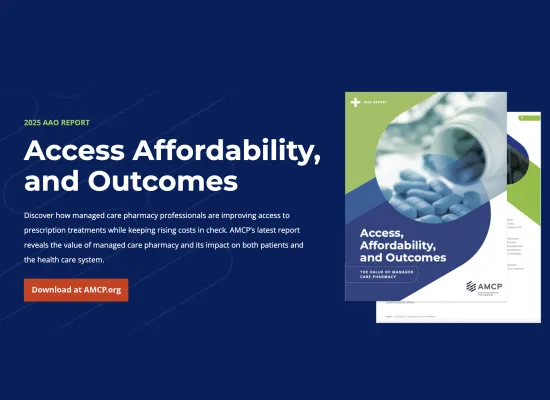
Lowering Cost Share May Improve Rates of Home Glucose Monitoring Among Patients with Diabetes Using Insulin
Alexandria, Va., August 14, 2017 — Lowering the out-of-pocket costs of blood glucose testing strips can improve diabetes patients’ persistence with home monitoring, according to an article in the August 2017 issue of the Journal of Managed Care & Specialty Pharmacy (JMCP).
Little was known about the relationship between patient cost sharing and the continued use of testing strips, according to the retrospective observational study. To gain insight, researchers from HealthCore and Anthem examined medical and pharmacy claims data integrated with laboratory hemoglobin A1c values for patients using insulin and blood glucose testing strips. Data were divided into patients with low cost-sharing and those with high cost-sharing, and the researchers compared the likelihood of the two groups to continue filling prescriptions for testing strips.
The results showed that patients with low cost share had higher rates of continued testing strip fills compared with those with high cost share (89% vs. 82%, P < 0.001). The study concluded there was a statistically significant association between cost share for testing strips and continued blood glucose self-monitoring. Among patients not achieving A1c control at baseline, there was an increase in the magnitude of the relationship.
The findings suggest that cost sharing that falls below 20% of testing strip costs can facilitate persistent self-monitoring, especially among those not achieving glycemic control, the authors say. Furthermore, payers and employers may consider including diabetes testing strips in lower cost-share tiers or informing members about preferred testing strips in the lower cost-share tiers, they add.
“Lowering cost share for testing strips can remove a barrier to persistence in diabetes self-management,” the study concludes.
Read the study at http://bit.ly/2tHssyr. The August 2017 issue of JMCP is available at www.jmcp.org/.
About JMCP
The Journal of Managed Care & Specialty Pharmacy publishes peer-reviewed original research manuscripts, subject reviews, and other content intended to advance the use of the scientific method, including the interpretation of research findings in managed care pharmacy. It is dedicated to improving the quality of patient care by providing its readers with the results of scientific investigation and evaluation of clinical, health, service, and economic outcomes of pharmacy services and pharmaceutical interventions, including formulary management. www.jmcp.org.
Featured News & Resources
See Full CalendarAMCP Southwest Day of Education
Award Applications Open
Upcoming Events
AMCP offers a wide variety of educational opportunities, from events and webinars to online training.







